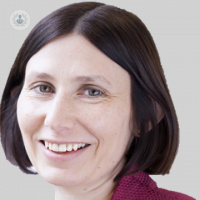Ovarian cancer: Can it go unnoticed?
Written by:What are the symptoms of ovarian cancer?
Symptoms of ovarian cancer are often very difficult to detect and as a result, ovarian cancer is often refered to as ‘the silent killer’. This is because patients do not tend to have any symptoms until a very late stage.
If people do get symptoms, the most common ones are abdominal distension and swellling of the abdomen.

Can ovarian cancer go unnoticed?
Generally, ovarian cancer goes unnoticed until the later stages. This is because there are not many symptoms with the early stages.
As a result, around 70 to 80% of ovarian cancer patients are diagnosed at late stages. Those who are diagnosed at an early stage are usually diagnosed by accident when they are being tested for other things.
How can people check for ovarian cancer?
It is possible to detect ovarian cancer early but the difficulty with detecting ovarian cancer at an early stage is because the symptoms are quite unspecific. Due to this, it is hard to tell people what to look out for with any certainty.
In addition, things such as screening, which have been undertaken for other cancers to try and pick them up at early stages, have not been shown to reliably detect ovarian cancer at an early stage. This means that there are not reliable tests that doctors can tell people to get as a routine as they would, for example, with breast screening, in detect ovarian cancer at an early stage.
How is ovarian cancer treated?
For the majority of patients, ovarian cancer will be treated with a combination of surgery and chemotherapy. Ovarian cancer is one of the cancers where chemotherapy can make a massive difference in terms of both people’s symptoms and their outcomes.
Increasingly, doctors are looking at maintenance treatments. These treatments usually involve tablets, which doctors give to patients after they have completed chemotherapy and surgery to prevent the cancer from coming back. This treatment also makes a huge difference to people’s outcomes.
Is it possible to live a full life after ovarian cancer?
It can be possible to live a full life. The difficult thing is that ovarian cancer is almost always picked up at a late stage and there are people that doctors cannot cure from ovarian cancer, unfortunately. However, because the treatments are continually improving, they can help patients to survive for many years with ovarian cancer.
If the cancer is picked up at an early stage it is most definitely curable. It can be detected at an early stage and many doctors have had numerous patients whose ovarian cancer has been picked up at an early stage. This is particularly common if there is an underlying inherited component, in which case doctors can discharge the patient after ten years with the knowldege that they will live an ongoing cancer free life.
If you are concerned about your ovarian health and would like to schedule a consultation with Dr George, do not hesitate to visit her Top Doctors profile today.


